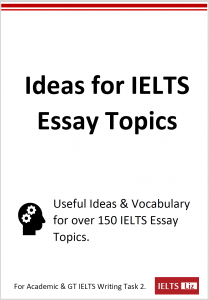It is possible to be asked about musical instruments in all parts of the IELTS speaking test. Below are some questions which mostly appear in part 1 but questions 4 to 5 can appear in part 1 and part 3. Two model answers are given below as well. This is topic currently being used in 2017.
You can vocabulary for types of musical instruments here: Musical Instruments Word List
Questions: IELTS Speaking Musical Instruments Topics
Check some possible questions for this topic:
- Did you ever learn a musical instrument as a child?
- If you could learn a musical instrument, what would you choose?
- If you had a child, what musical instrument would you encourage him/her to play?
- What traditional instruments are there in your country?
- Do you think traditional musical instruments have a place in modern society?
- How do you think traditional music could be made more popular?
Sample Answers for Part 1
Q. Did you ever learn a musical instrument as a child?
A. No, I didn’t but I always wish I had. If I had had the chance, I would have learned the guitar. The problem was that my parents thought it was more important to focus on school work than learn to play an instrument.
Q. If you could learn to play any musical instrument, what would you choose?
A. I think I’d probably go for the violin. It’s such a beautiful stringed instrument and I think the music that can be played on it, can be really haunting and moving. Yes, I’d definitely choose that one.
Sample Answer for Part 3
Do you think traditional instruments have a place in modern society?
Absolutely yes. Traditional instruments are part of our heritage and our identity. I believe that all school children should have the opportunity to learn to play one of them a part of their music lessons. For example, the tabla, which is like a pair of wooden hand drums, is a traditional instrument in our country and is part of most traditional songs. So, learning it would enable children to appreciate their country’s musical history more.
Recommended for IELTS Speaking:
Common Topics for Speaking Part 1
Free Video: Common Question Types in Speaking Part 1
Current Topics in Speaking 2017
All Speaking Tips & Model Answers
Musical Instruments Vocabulary
Main IELTS Pages
Develop your IELTS skills with tips, lessons, free videos and more.
- IELTS Listening
- IELTS Reading
- IELTS Writing Task 1
- IELTS Writing Task 2
- IELTS Speaking
- Vocabulary for IELTS





